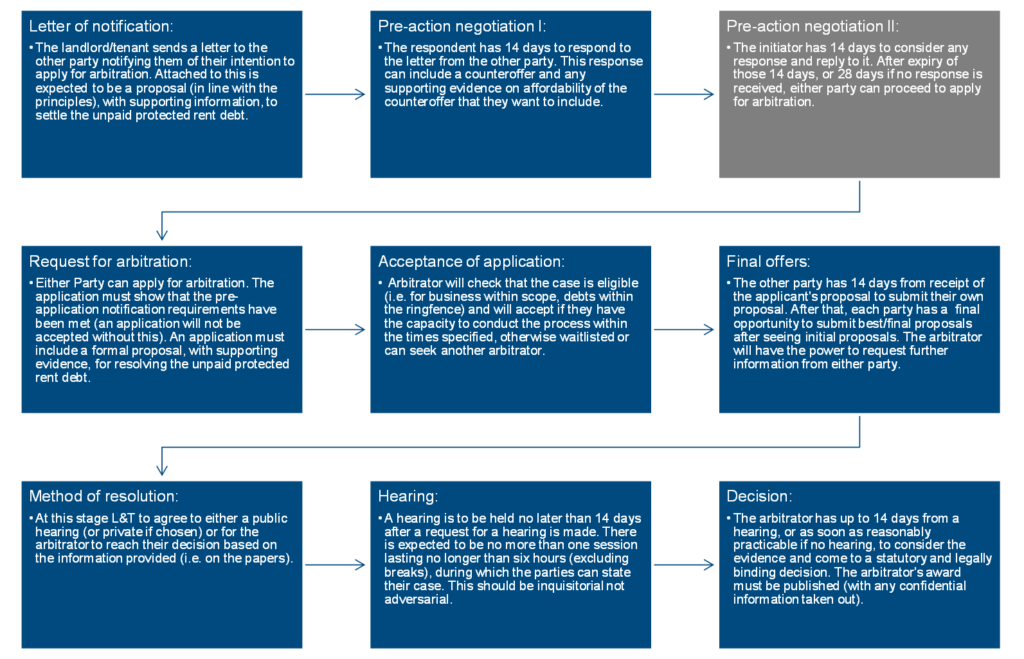Daniel Blake, Dispute Resolution Senior Associate
Further to our previous update in June 2021, the Government has now announced:
- A new Code of Practice (“Code”) to guide landlords and tenants in their negotiations;
- Legislation that will provide a legally-binding process for resolving ring-fenced commercial rent debt accrued during the COVID-19 pandemic.
As previously communicated, the Government has already extended the protection from forfeiture provisions – that apply to all commercial tenants – until 25 March 2022. This was primarily introduced to afford landlords and tenants more time to negotiate and resolve outstanding debts.
The Code (effective from 9 November 2021) provides landlords and tenants with a procedure for resolving outstanding debts prior to the introduction of a binding arbitration process after March 2022. It applies to all commercial landlord/tenant relationships and states that tenants who are unable to pay in full should negotiate with their landlord. It would seem that there is an expectation that landlords should waive some or all of the rent arrears where they are able to do so.
After 25 March 2022, the Commercial Rent (Coronavirus) Bill (“Bill”) will establish a legally-binding arbitration process for those parties who have followed the Code but not reached an agreement in respect of the accrued rental arrears. This legislation will only apply to businesses that were forced to close during the pandemic (for example, but not limited to, pubs, gyms and restaurants) and in respect of arrears that accrued during the periods of enforced closure. Accordingly, rental arrears accrued by businesses that were not forced to close during the pandemic appear to be outside the scope of the arbitration process.
Should either party invoke the multi-stage arbitration process (see flow chart below), then an arbitrator will make a legally-binding award in respect of the (eligible) ring-fenced arrears.
Furthermore, the Government has also announced that as of today (10 November 2021), commercial tenants that are eligible for the arbitration process will be protected from debt claims* (including County Court Judgments (CCJs), High Court Judgments (HCJs) and bankruptcy petitions) issued against them in relation to the ring-fenced arrears. This demonstrates a clear intention to afford further protection to such businesses whilst they continue to negotiate, as required by the Code, and during the arbitration process.
The arbitration process is expected to come into force from 25 March 2022. Until this time, commercial landlords and tenants should try to work collaboratively, with the Government expecting:
- Commercial tenants to pay what they can afford; and
- Commercial landlords waiving some or all rent arrears where they are able to do so.
We will provide further updates on the Code and Bill in due course. In the meantime, if you are a commercial landlord or tenant that requires advice on property-related issues, or any other type of dispute, whether out of the present Coronavirus pandemic or otherwise, then please contact Daniel Blake (dblake@quastels.com), a Senior Associate in our Dispute Resolution team.
*Note – it appears that these further protections will not apply to businesses that have remained open throughout the pandemic but we await further clarification.
Please note – this article does not constitute legal advice.



